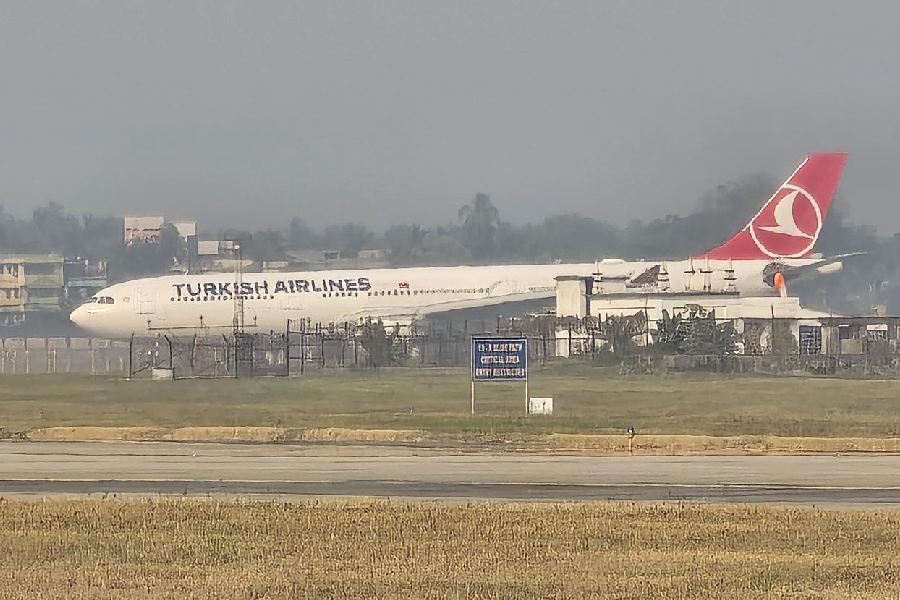Muslim business leaders have published a public apology in a prominent Hindi daily on Monday for an attack on health workers in Indore, Madhya Pradesh, last week.
The businesspersons from the commercial hub of central India said none of them took part in the attack but were issuing the apology to “atone for our failure to dispel rumours in our community” as well as influence “public opinions formed on social media”.
A columnist said the advertisement reflected the fear within the minority community, aggravated by a “wave of public opinion that sees Muslims as animals” since the news about the Tablighi Jamaat congregation broke and attention stayed focused on the spread of the Covid-19 infection.
Apparently provoked by rumours, some residents of Tatpatti Bakhal, a congested working-class neighbourhood in Indore, chased a medical team in coveralls on April 1. Two doctors suffered injuries on their legs.
The team was visiting homes to find people who may have come in contact with coronavirus patients in the Muslim-majority neighbourhood where more than 10 people had tested positive. In Indore, 13 people have died of Covid-19.
The half-page advertisement on Page 2 of Dainik Bhaskar’s Indore edition on Monday was placed by 20 renowned Muslims and their institutions.
Titled “Maafi Nama (Apology)”, the advertisement is addressed to doctors, nurses, administrative officials, police, social workers and all those involved in the effort to curb the spread of the virus.
It says: “We have no words to apologise to you. Believe us, we are ashamed of the untoward incident that happened because of the rumours. We confess that after God, it is you who stand like a wall for us in every illness, and difficulty. That is why, today, we apologise from our hearts. Please forgive us. We cannot go back in time and correct what has happened, but we promise you that we will make every possible effort to end every shortcoming of society.”
The advertisement appealed to the Muslim community not to believe in rumours and to help doctors, medical teams, police and the administration and “become an example of good citizens”.
The Pakiza family that runs a chain of textile stores and charities is one of the 20 signatories to the ad.
Iqbal Gori, a member of the Pakiza family, told The Telegraph: “Despite our stature in our community, we failed to educate our brethren about this disease and quell false rumours about why health workers were visiting our homes. We are accountable for our silence on this issue and we issued this apology to express regret for the incident that has taken place.”
Asked what prompted them to issue an apology for an offence they did not commit, Gori replied: “Social media is so powerful that opinions are formed there based on incomplete information. The whole country is enraged by the actions of a few, incidents like what happened in our city. Indoris are law-abiding and peace-loving. People from all communities have shown us their love and have stood by us in our times of grief for generations, and this ad was to reaffirm our commitment to society.”
Asked if he had faced any communally charged remarks for the incident, he replied: “During a lockdown, one doesn’t know what is in the mind of the person in front of you. But after the ad was published, many Hindus and Muslims called to express their support for what we had done.”
The Pakiza family has also been providing relief to stranded workers since the lockdown began.
Indore-based columnist Jawed Alam said he was shocked but not surprised at the ad.
“It would seem illogical for a group of businessmen to ostensibly apologise on behalf of all Muslims for an offence alleged committed by a few people suspected to be Muslims. But from the day (March 30) that the Tablighi Jamaat story broke, there is a wave of public opinion that sees Muslims as animals. The ad is a reflection of the fear within the community. Indore’s shehar qazi Ishrat Ali had already issued a public apology soon after the incident. The Muslim community is on the defensive and feels a greater insecurity from the medical emergency that has turned into a communal issue,” Alam said.
“Two days before Tatpatti Bakhal, two doctors were hit in Ranipura -- a neighbourhood with both Hindus and Muslims. No one questioned any religious community for the incident. While the public apology does express a larger fear of affluent Muslims of being further stigmatized, Indore itself has been peaceful, and public memory has moved beyond the incident.”
Several areas of Indore and Bhopal are under a complete curfew as containment zones where positive cases have been reported. Indore, with a large population of day labourers, had its collector and police chief replaced as soon as the BJP came to power last month -- at a time when preparations were on to cope with a possible flow of patients and those who needed to be quarantined.
In the capital Bhopal, 32 officials have reportedly tested positive. The source of the virus to affect the bureaucracy is yet to be traced. Of the 285 cases in Madhya Pradesh, 21 have died. Indore accounts for 151 cases and 13 deaths.











